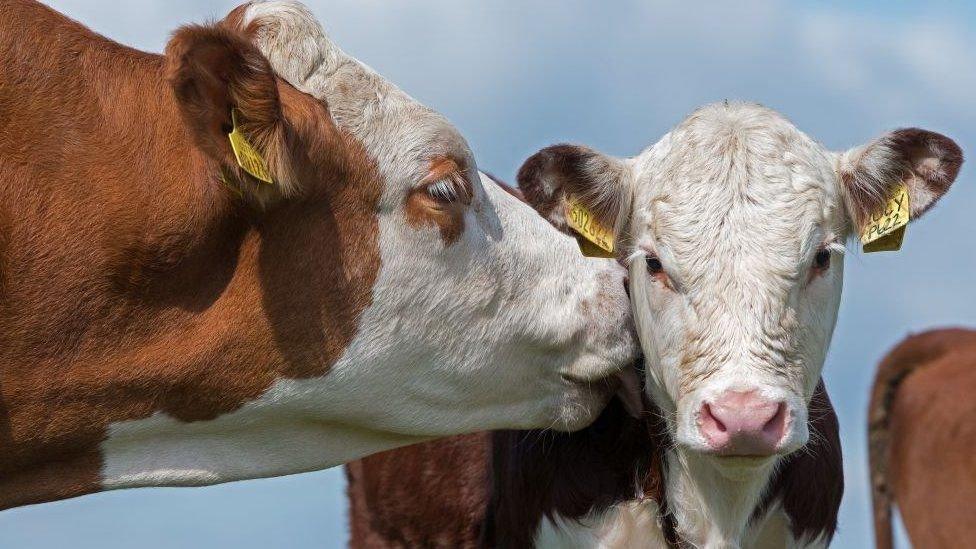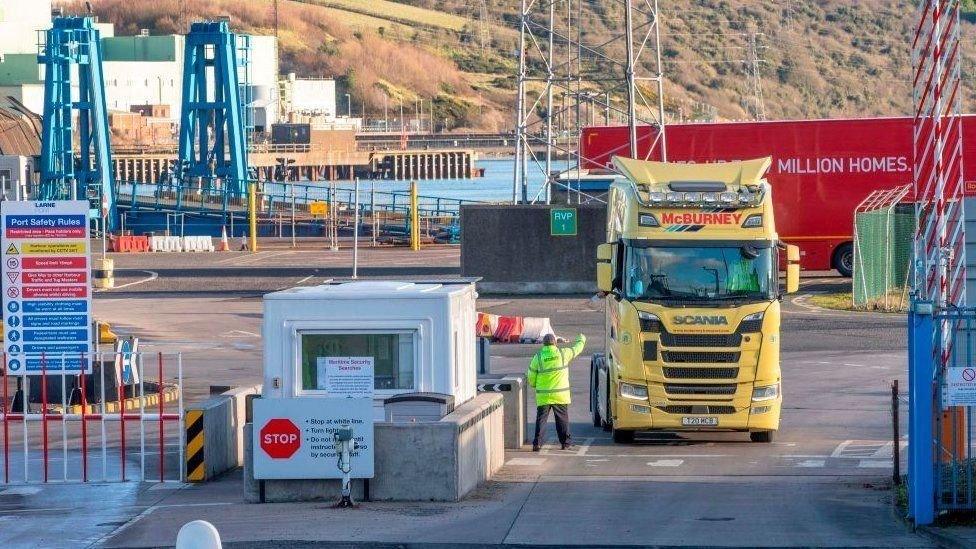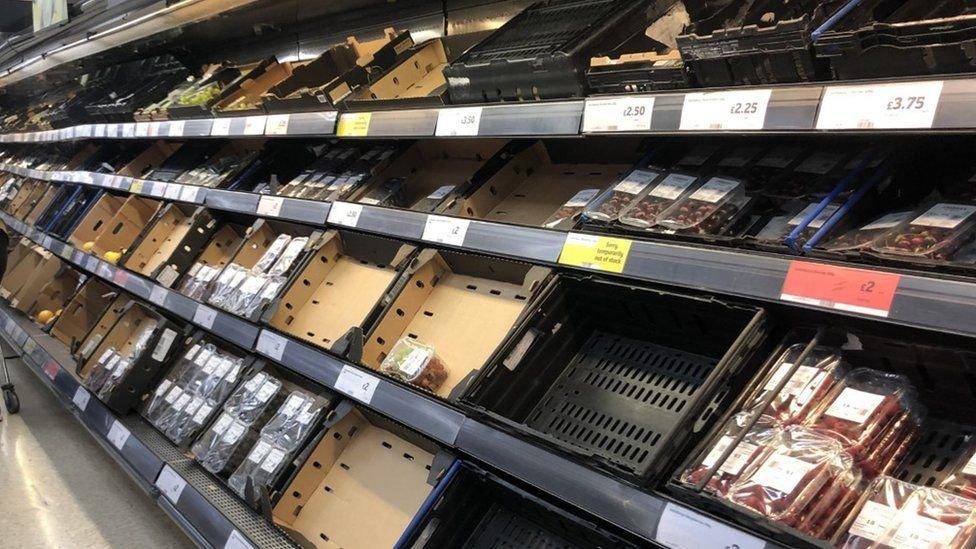Brexit: Agri-food report finds significant challenges with NI Protocol
- Published

For the NI Protocol to function it must have rules which are risk-based and appropriate, according to a major agri-food report published on Thursday.
Some of the biggest food producers on both sides of the Irish border were surveyed for the study by the Irish Farmers' Journal and KPMG.
It looked at how businesses coped with the challenges of Covid and Brexit.
Firms including Kerry Group, Fane Valley Ltd, Finnebrogue and Lidl took part.
On the protocol, the report said no "off-the-shelf" solution could make it work and it would need rules that were specially adapted for the job.
The protocol is the rulebook governing the trade in goods across the Irish Sea between Britain and Northern Ireland.
It was developed to prevent a hard border on the island of Ireland, but means checks to protect the EU's single market are instead carried out at Northern Ireland ports.

Brexit checks are carried out at Northern Ireland ports
The report found that since Brexit, a 1kg online purchase of a speciality cheese needed the same veterinary certification as a 20 tonne container of it.
This represented "commercial viability challenges" for businesses, it concluded.
Agreed grace periods, after which full controls kick in, have been unilaterally extended by the UK government until 1 October 2021.
The EU has begun legal action in response and the two sides are trying to negotiate a compromise.
Significant impediments
The head of Fane Valley, Trevor Lockhart, told the report's authors the new trading rules presented difficulties.
He said they weren't designed for the volume of trade in an internal market.
The report found that farmers and processors had welcomed the tariff-free, quota-free deal agreed by the UK and the EU.
But it pointed out that tariff-free did not mean barrier-free trade, with plant and animal health rules posing significant impediments to business.
On Covid-19 the report found that many firms had embraced e-commerce as never before during the pandemic.
As a result, a high speed broadband connection was now as important to rural regions as a good electricity supply.
Related topics
- Published18 May 2021

- Published17 May 2021

- Published2 February 2024
